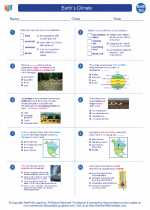Cells
Cells are the basic building blocks of all living organisms. They are the smallest unit of life and carry out all the processes necessary for an organism to function and survive. There are two main types of cells: prokaryotic cells and eukaryotic cells.
Prokaryotic Cells
Prokaryotic cells are simpler and smaller than eukaryotic cells. They do not have a nucleus or membrane-bound organelles. The genetic material in prokaryotic cells is found in the cytoplasm in the form of a single circular chromosome. Prokaryotic cells are found in bacteria and archaea.
Eukaryotic Cells
Eukaryotic cells are more complex and larger than prokaryotic cells. They have a true nucleus that houses the genetic material, as well as membrane-bound organelles such as mitochondria, endoplasmic reticulum, and Golgi apparatus. Eukaryotic cells are found in plants, animals, fungi, and protists.
Cell Organelles
Eukaryotic cells contain various organelles that carry out specific functions within the cell. Some of the important organelles include:
- Nucleus: Contains the genetic material (DNA) of the cell.
- Mitochondria: Site of cellular respiration, where energy is produced.
- Endoplasmic Reticulum: Involved in the synthesis and transport of proteins and lipids.
- Golgi Apparatus: Modifies, sorts, and packages proteins for secretion.
- Cell Membrane: Regulates the movement of substances in and out of the cell.
- Chloroplasts (in plant cells): Site of photosynthesis, where energy from sunlight is converted into chemical energy.
Cell Theory
The cell theory is a fundamental concept in biology that states:
- All living organisms are composed of one or more cells.
- The cell is the basic unit of structure and organization in organisms.
- All cells come from pre-existing cells through the process of cell division.
Study Guide
To study the topic of cells, consider focusing on the following key points:
- Understanding the differences between prokaryotic and eukaryotic cells.
- Exploring the functions of various cell organelles and their roles in cellular processes.
- Memorizing the cell theory and its three fundamental principles.
- Comparing and contrasting plant and animal cells, including the unique organelles present in each type of cell.
- Studying the process of cell division and the different phases of the cell cycle.
Additionally, engaging in hands-on activities such as observing cells under a microscope, conducting experiments related to cellular processes, and creating cell models can enhance understanding and retention of the material.
Remember to review and practice regularly to reinforce your understanding of cell biology!
[Cells] Related Worksheets and Study Guides:
.◂Earth Science Worksheets and Study Guides High School. Earth`s Climate

 Worksheet/Answer key
Worksheet/Answer key
 Worksheet/Answer key
Worksheet/Answer key
 Vocabulary/Answer key
Vocabulary/Answer key
 Vocabulary/Answer key
Vocabulary/Answer key
 Vocabulary/Answer key
Vocabulary/Answer key
